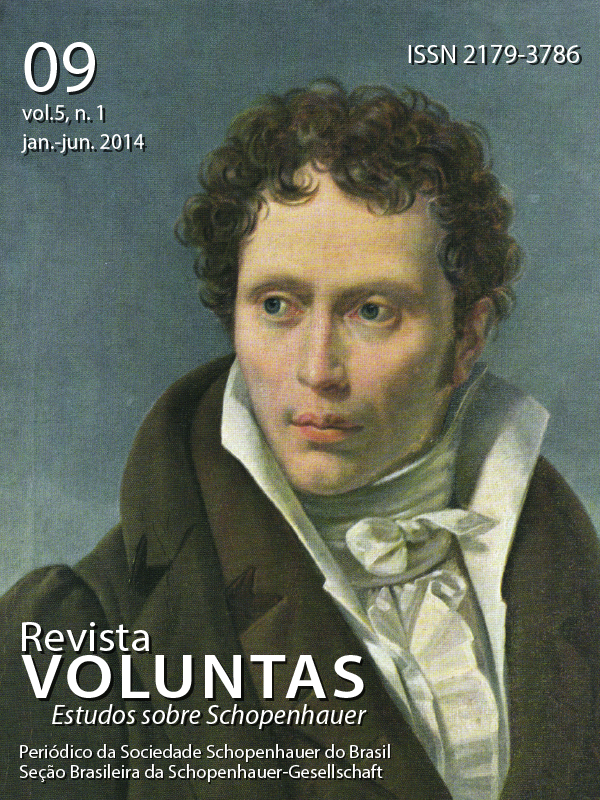The suffering of the dissatisfaction of the desires and the seduction of the consumer society
DOI:
https://doi.org/10.5902/2179378633947Keywords:
Desire, Suffering, ConsumptionAbstract
In this article we discuss the schopenhauerian theory about the wishing well in human life and in what manner it regulates human actions as a generator device of suffering, because it stimulates the individual to satisfy continuously desideratives impetuosity. Capitalism would strengthen these provisions, by stimulating the human satisfaction by developing the affluence of the consumer society.Downloads
References
ARENDT, Hannah. A condição humana. Trad. de Alberto Raposo. Rio de Janeiro: Forense, 1981.
BERGER, John. Modos de Ver. Trad. de Lúcia Olinto. Rio de Janeiro: Rocco, 1999.
FROMM, Erich. Ter ou Ser? Trad. de Nathanael C. Caixeiro. Rio de Janeiro: LTC,1987.
LAFARGUE, Paul. O direito à preguiça. Trad. de Otto Lamy de Oliveira. São Paulo: Ed. Claridade, 2003.
LIPOVETSKY, Gilles. A sociedade da decepção. Trad. de Armando Braio Ara. Barueri: Manole, 2007.
SCHOPENHAUER, Arthur. O mundo como vontade e como representação. Trad. de Jair Barboza. São Paulo: Ed. UNESP, 2005.
SLATER, Don. Cultura do consumo e modernidade. Trad. de Dinah de Abreu Azevedo. São Paulo: Nobel, 2002.
WEBER, Max. A Ética Protestante e o “espírito do capitalismo”. Trad. de José Marcos Mariani de Macedo. São Paulo: Companhia das Letras, 2004.
Downloads
Published
How to Cite
Issue
Section
License
The submission of original manuscripts to this journal implies the transference, by the authors, of the copyrights for printed and digital publication. The copyrights of a published manuscript belong ultimately to the author, and only the copyright for its first publication is reserved to the journal. Authors may only use the same results in other publications explicitly indicating this journal as the medium of the original publication.
Licence
Attribution-NonCommercial-ShareAlike 4.0 International (CC BY-NC-SA 4.0) - This license lets others remix, tweak, and build upon your work non-commercially, as long as they credit you and license their new creations under the identical terms.







